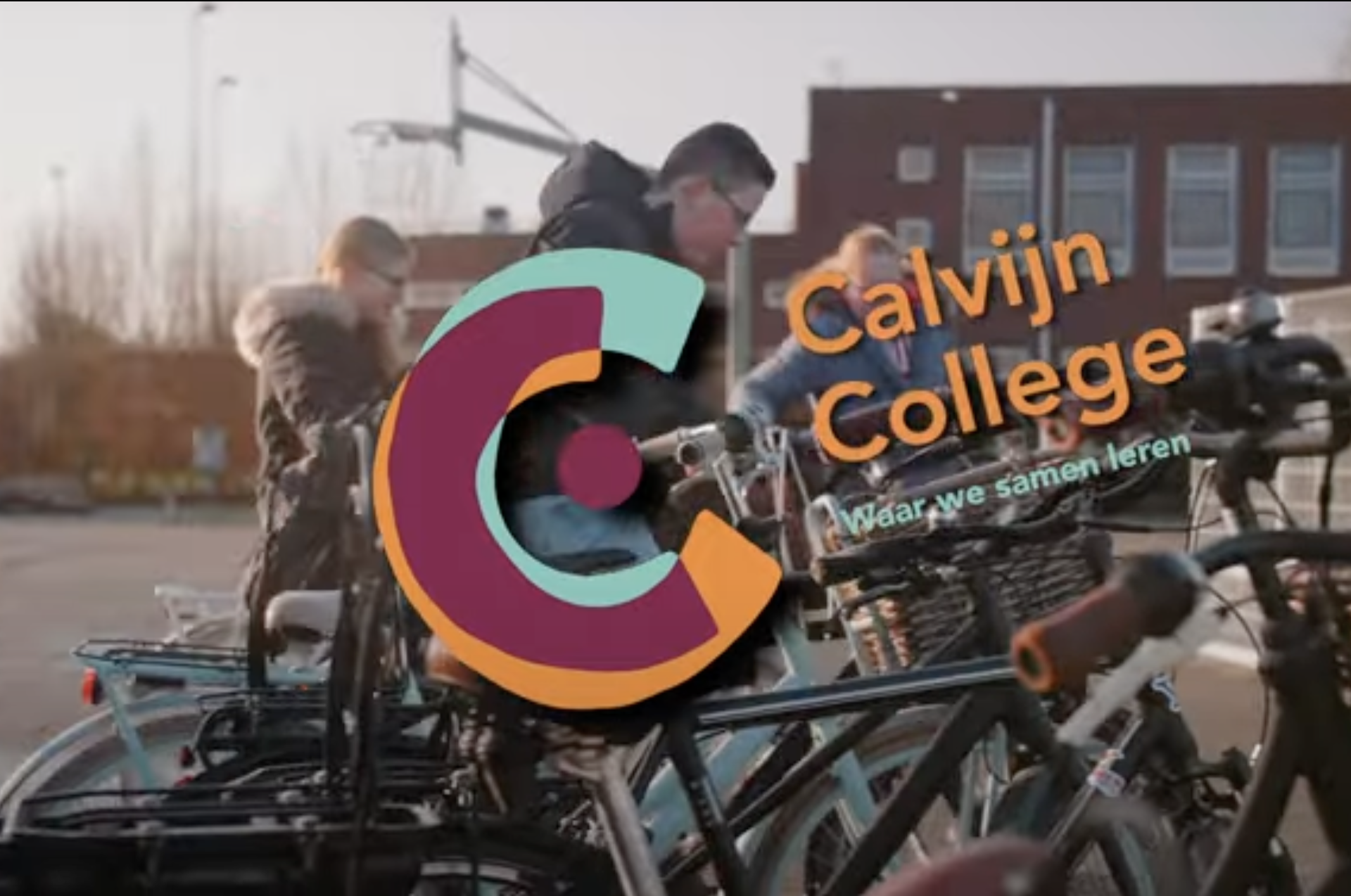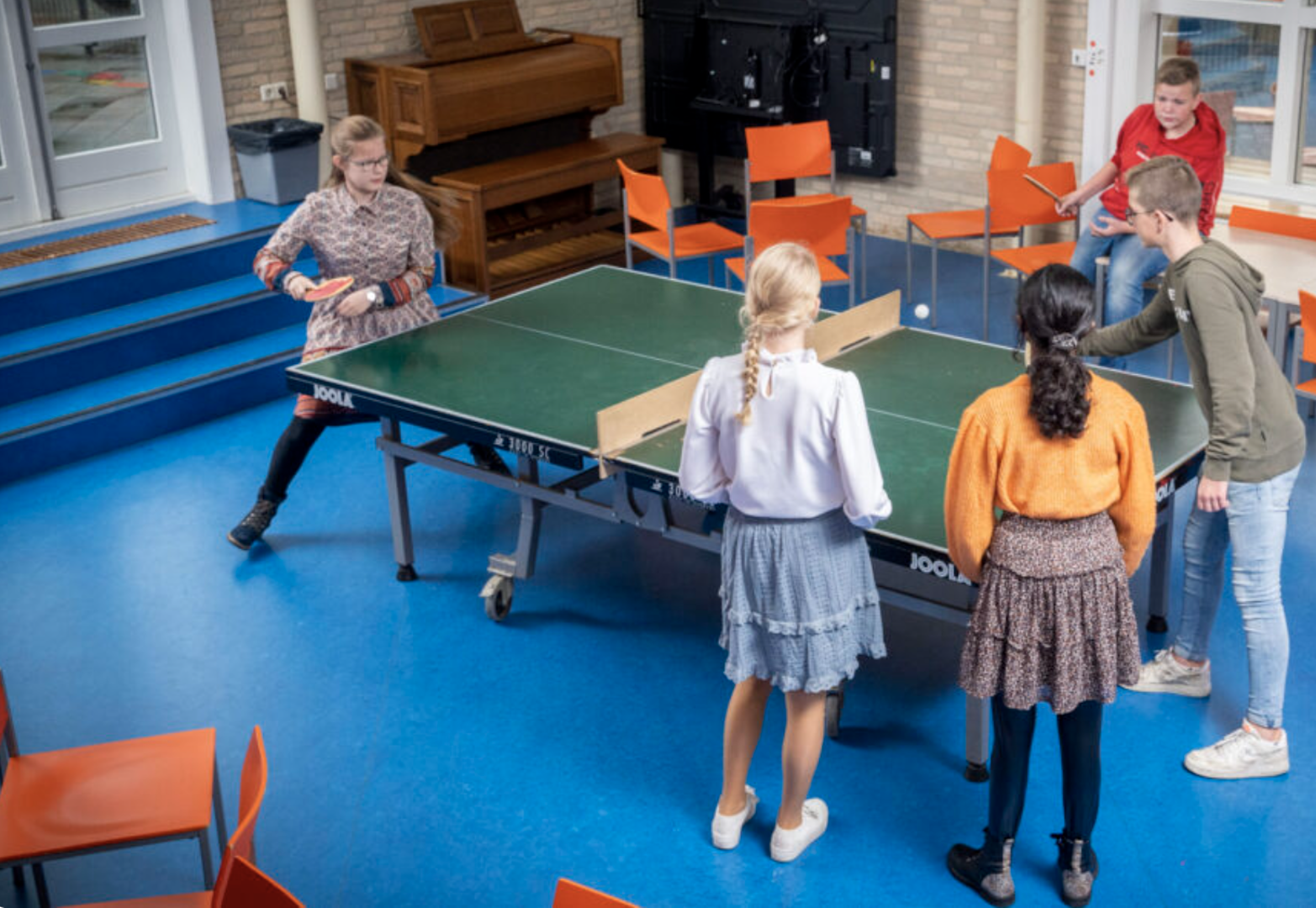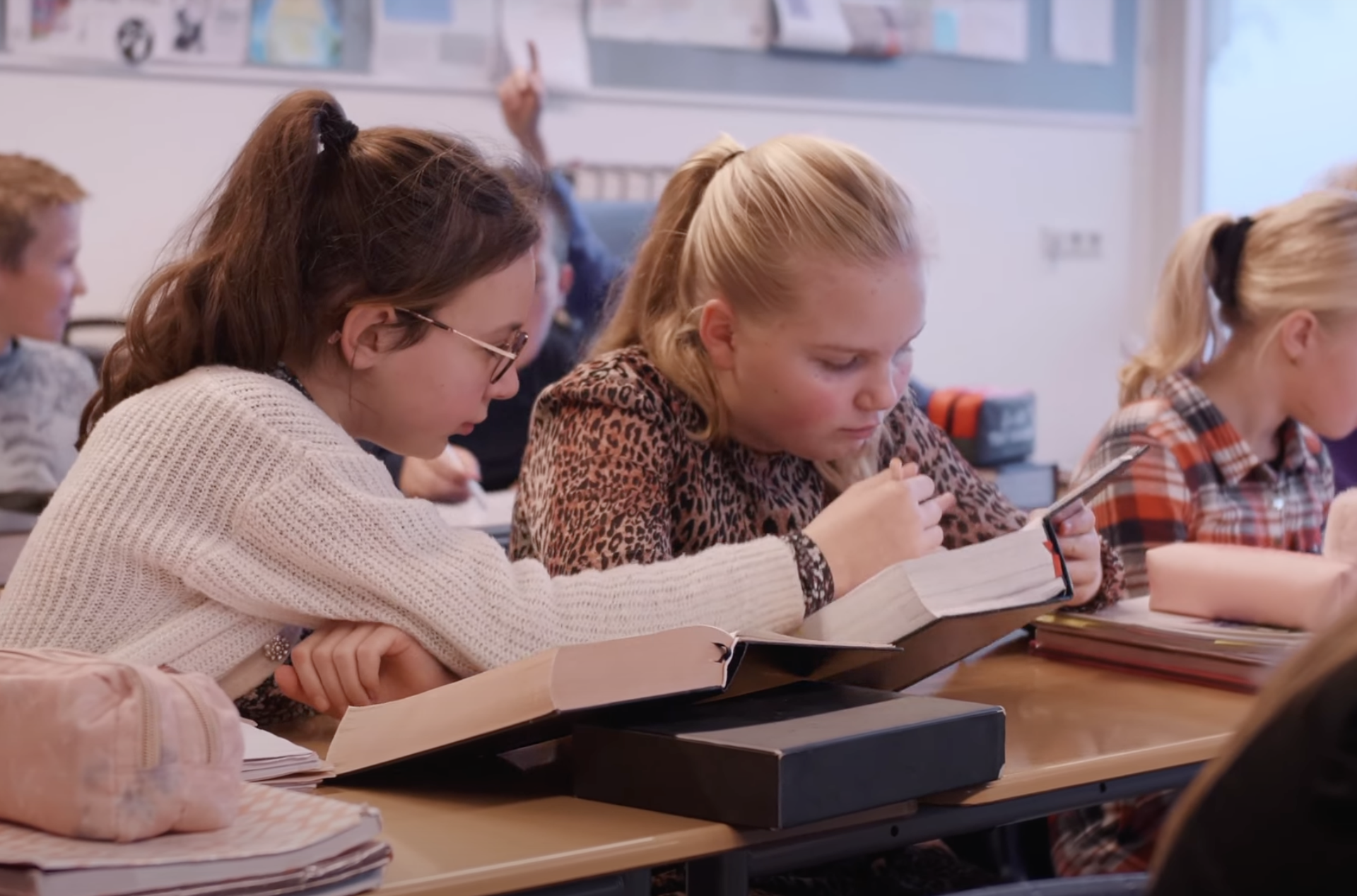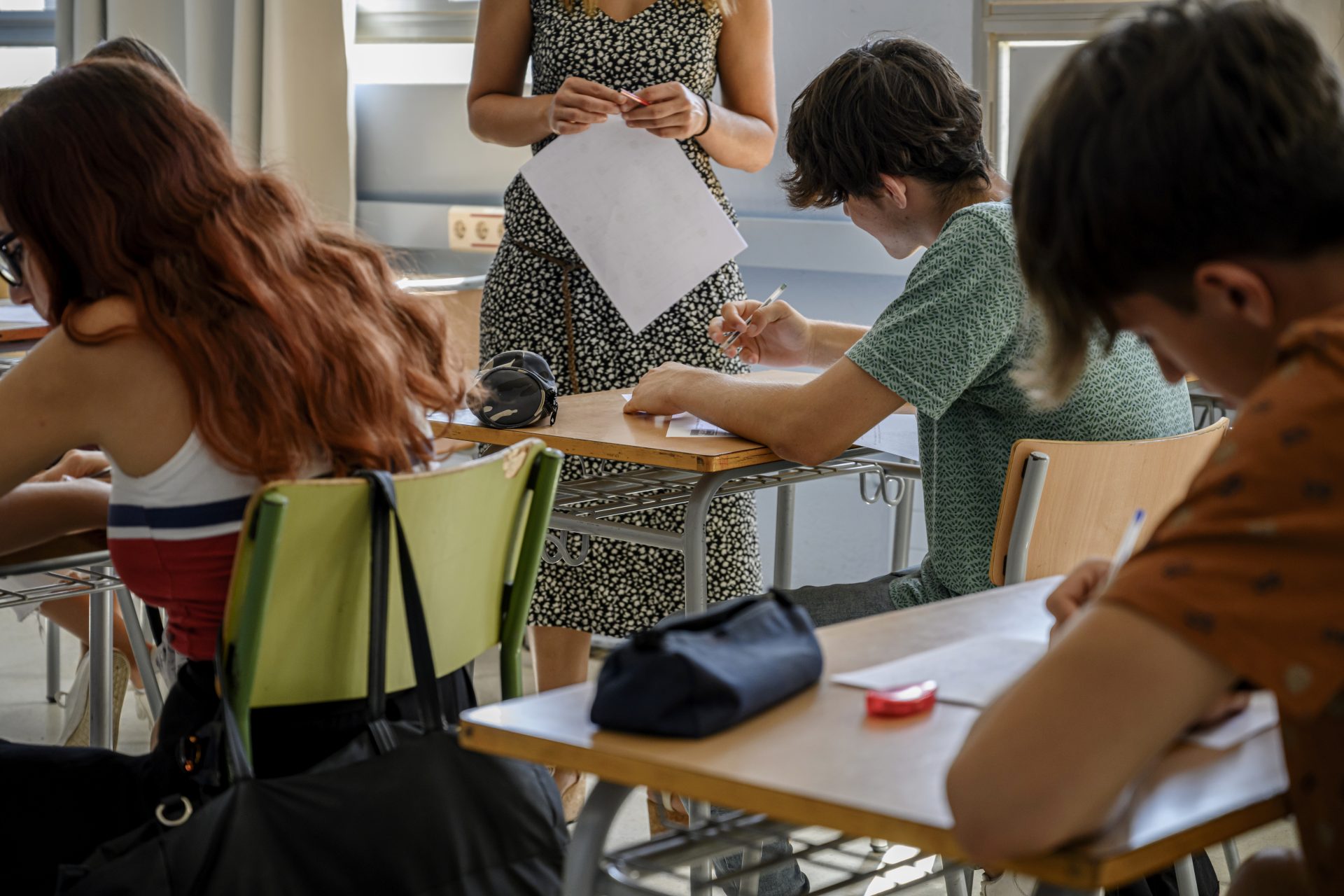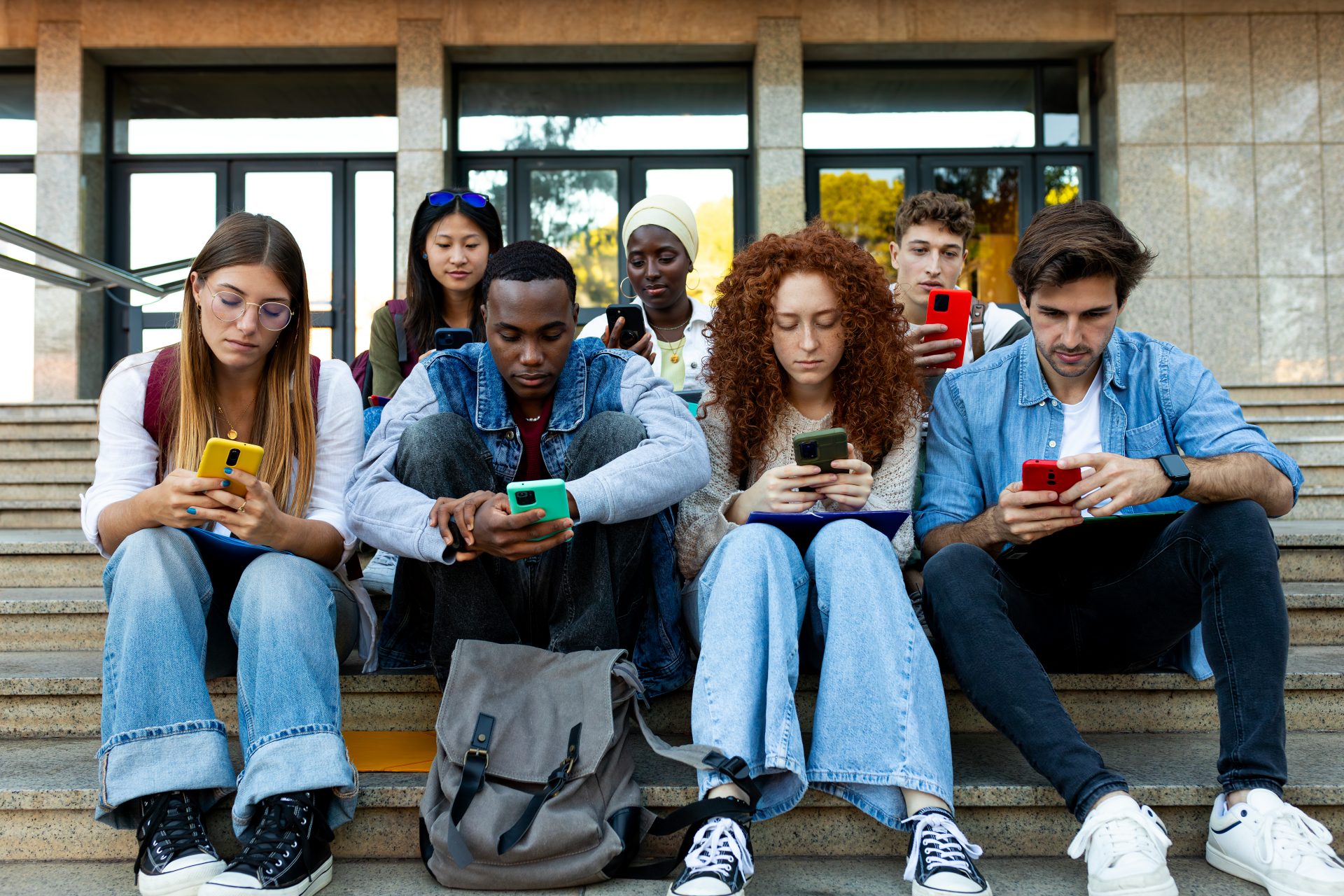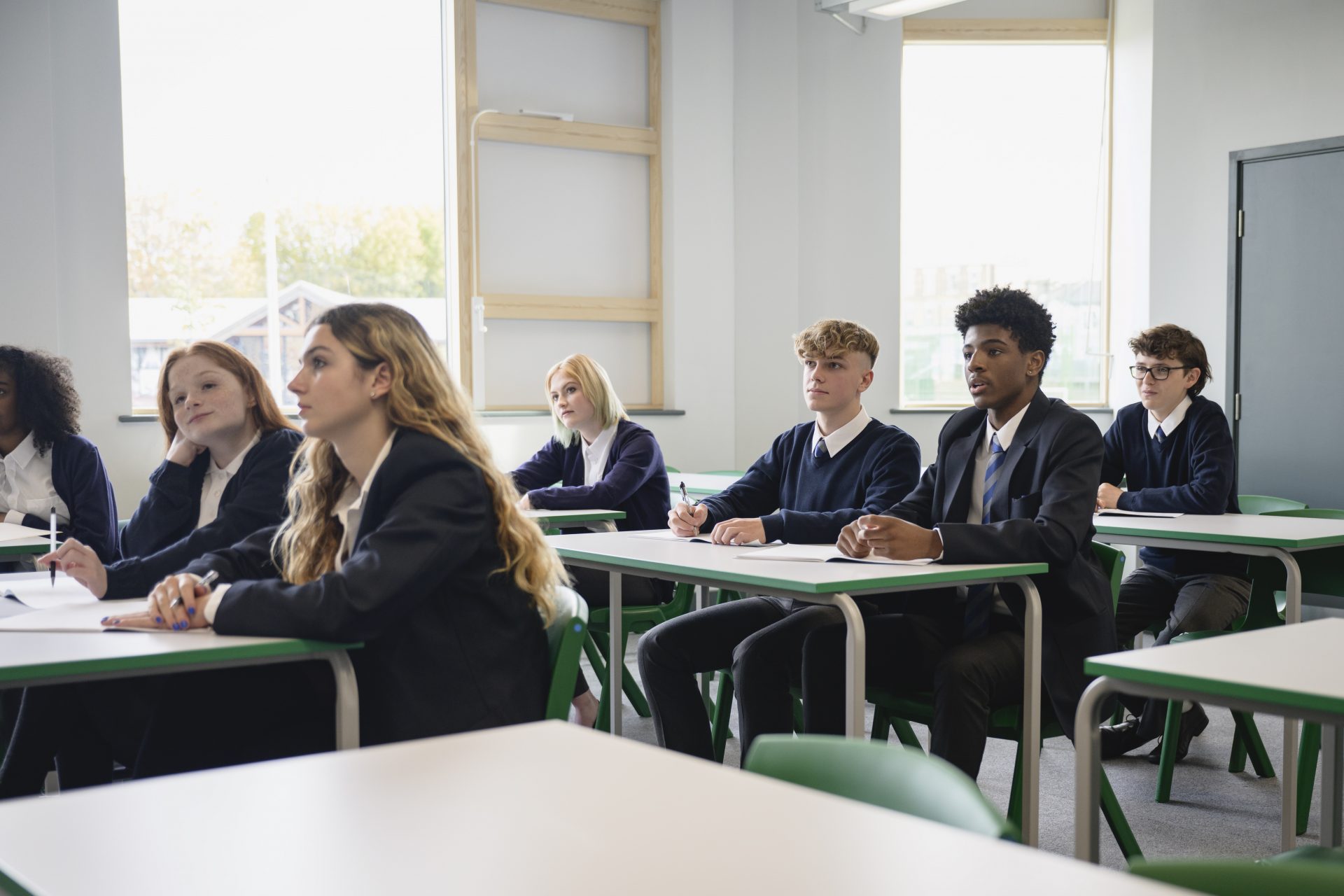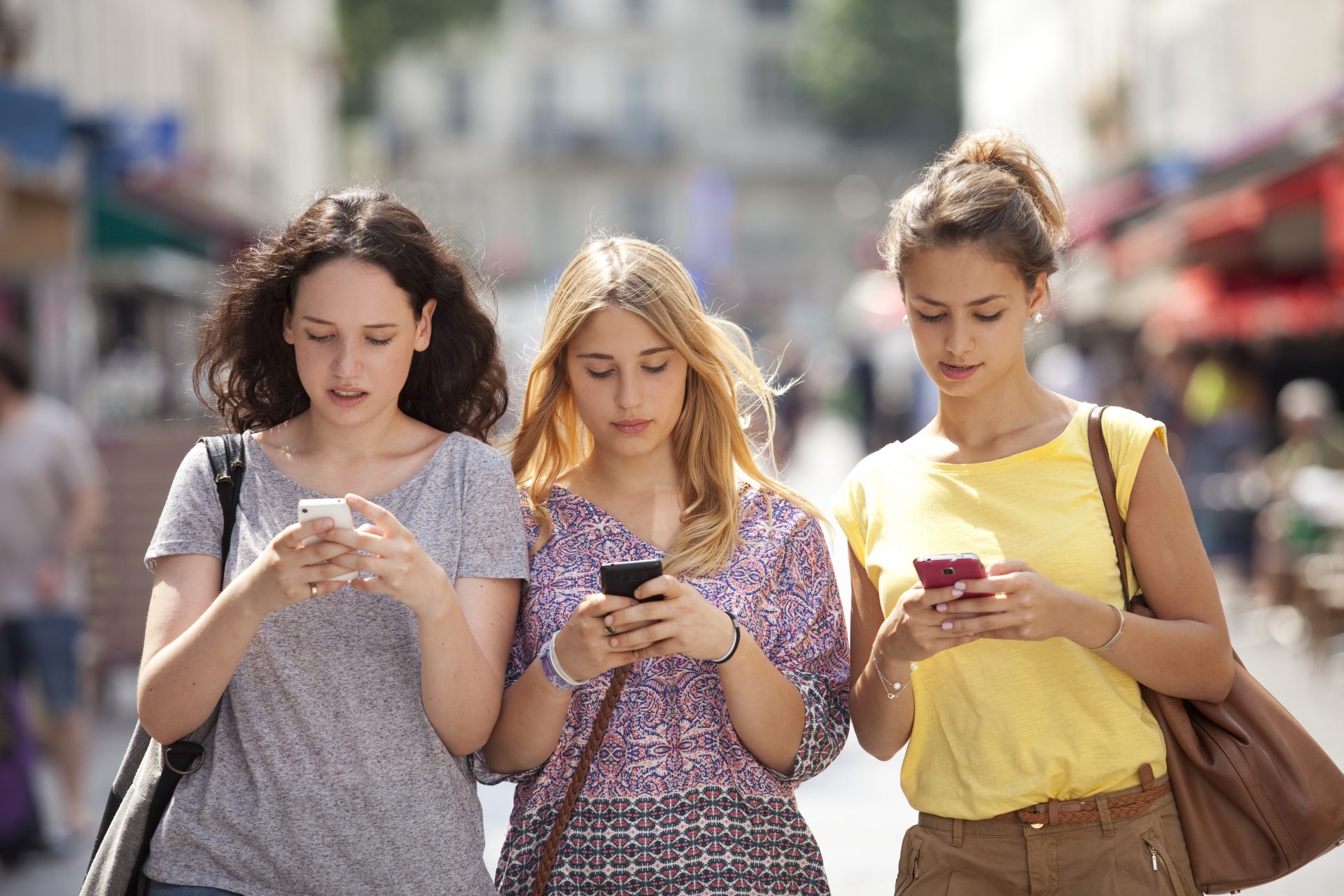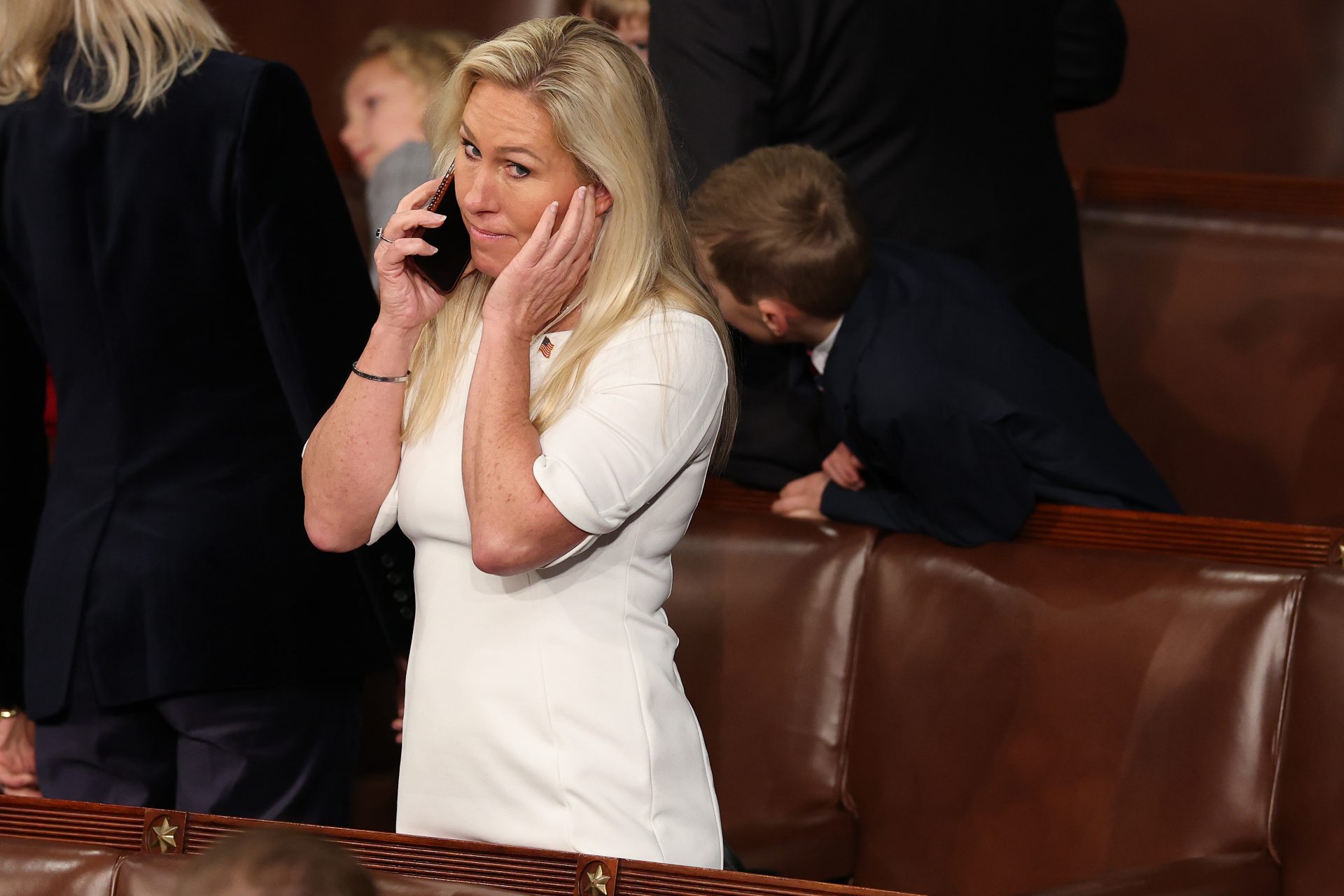Ringing the changes: phones appear to have had their day in schools
The average time it takes a student to refocus after receiving a message on their phone is around 20 minutes, according to UNESCO’s 2023 GEM report so it’s not surprising an increasing number of schools are introducing a blanket ban.
Jan Bakker, the chair of the Netherlands’ Calvijn College who banned phones on the premises four years back, told The Guardian, “We went through a time when people were saying that we weren’t a modern school, that we were going back in time.”
Photo: Screenshot from Calvijn College website.
But the fact that the corridors were all but silent and the table tennis tables abandoned encouraged school authorities to push past any objections. Now they find that, far from pushing the school into the Middle Ages, they were ahead of the curve.
Photo: Screenshot from Calvijn College website.
“Basically, what we had lost, we got back,” said Bakker. “The students playing with each other and talking to each other. And a lot less interruptions in the lessons.”
Photo: Screenshot from Calvijn College website.
Impressed by the experiment, other high schools in the Netherlands are preparing to follow suit. Meanwhile, in France 200 schools are experimenting with a no-phone policy and nine regions in Spain, including Catalonia, have made schools a no-phone zone.
In America this summer, California Governor Gavin Newsom called for a ban on smartphones in classrooms and said he would work with lawmakers to turn the idea into reality. In New York, Governor Kathy Hochul has been pushing for a similar policy.
Researchers at the Netherlands’ Radboud University have carried out surveys of hundreds of students and parents, as well as scores of teachers, in order to analyze a before and after scenario.
About 20% of students surveyed said they found it easier to concentrate in the absence of their smartphone, while teachers said that students were more attentive and focused in class.
Just as importantly students spoke about having more and better screen-free social interactions while noting that there was considerably less cyberbullying.
British pioneer, UTC Plymouth and its head teacher Jo Ware, banned phones on the school premises in Devon, southwest England, five years ago with overwhelmingly positive results.
Photo: Screenshot from UTC Plymouth website.
According to Ware, the students were achieving better results, and their oral and communication skills had improved, making them better fit for the workplace.
Photo: Screenshot from UTC Plymouth website.
"When students are using their social time to be on mobile phones and devices, they are not learning the art of eye contact," Ware told the BBC.
Photo: Screenshot from UTC Plymouth website.
Dr Hazel Mycroft, a senior lecturer in psychology at the University of Exeter, told the BBC that children were “getting hits of dopamine all the time” through their phones.
“We know that phones and these short reels affect our brain chemistry," she said, explaining that this in turn reduces any ability to focus.
"When you take a child's phone away you can see that they get irritable, they get angry, they want to check their phone all the time. This is a result of the fact that they are exposed to this all the time,” she said.
In February 2024, the British government issued a recommendation advocating a phone ban. According to the 2022 PISA study, 71.8% of schools in England said the use of mobile phones was “not permitted on school premises,” though another survey put the outright ban at 16%, according to the BBC.
Another 2022 study published in the National Library of Medicine cited research indicating that 83% of children in the UK aged 12–15 own a smartphone and up to 64% of children aged 12–15 have three or more devices of their own.
More for you
Top Stories




